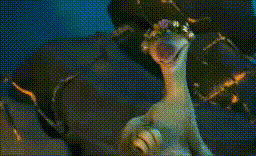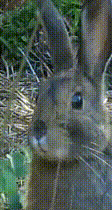CIVILISATION'S HABITUAL RUTS
Other animals repeat instinctive behaviour – humans repeat learnt behaviour.
Slowly we have become overwhelmed by the amount of focusing needed to learn and remember all our behaviour, our skills, and our ideas.
Skills and Knowledge
In traditional times humans were materially insecure, often cold and hungry – but we had a bigger brain than other animals; an intellect which put ideas together.We made tools, developed skills, clothes, and shelters for a home with a fire. We cooked meat and then celebrated with hunting tales. We looked at the stars, questioned deeper meanings, used our imagination, and developed an understanding of life. It was fun.
To think, learn, remember, and then repeat all our skills and beliefs, we had to focus. All of our social and practical skills, knowledge, and beliefs are based on our focusing abilities.
Our civilisation is happening as a result of what we have learnt from centuries of focusing.
Beliefs and Identity
Our practical skills were easily and readily exchanged with neighbouring tribes. Occasionally we adopted beliefs, especially when conquered by tribes with more powerful Gods, but essentially our beliefs remained our own. Beliefs were always central to human behaviour, reeason, and identity. We lived and died for our beliefs.
Beliefs were always central to human behaviour, reeason, and identity. We lived and died for our beliefs.
Traditionally we worshipped openly and together. We had a vivid consciousness of a common spiritual essence, and doing things for the common good.
But now we've lost our unquestioned and often adored common beliefs with their obvious subsequent goals and clear focal points in life.
Since the 1,600s with the questioning of traditional beliefs, came the development of individual freedom of thought and a multiplicity of modern beliefs.
Slowly, our ideas on psychological safety and purpose in life became a matter of individual choice. But these days, there are so many choices and simply not enough mutual confirmation to go around.
Even if we could all develop Gandhi's and Mandela's sense of empathy and respect for others – it could never replace the united and unquestioned safety and security of an entire local social group.
We've lost the safety of a mutually and culturally confirmed idea of knowing who and why we are.
We are facing a form of collective psychological insecurity, which no species or any previous culture has ever experienced or even imagined.
We have no idea what's really happening or why (we blame politics and each other), we accept it as inevitable (the world is going crazy).
Adapting to Needs
To prepare us all for a new world full of ideas and decision making, our modern early education became an intensive rational form of focused attention on abstract words and images.
We focused through telescopes and microscopes. And, to help us adapt quicker to the all new stimuli which we created, human ingenuity has now given us Artificial Intelligence to fast-track our lives even more efficiently.
The incredible momentum of modern civilisation leaves us in a ridiculous situation where, like Alice's Red Queen, there simply isn't any time left to slow down because there is so much more to keep learning and repeating.
Our cultural insecurity has become its own cause, always generating more of itself. It's exponential.
If we continue to experience life exclusively from a focused perspective, our thinking and our beliefs will become even more diverse at an ever increasing pace.
Belonging
We need focus points in life, we need beliefs and ambitions, but we need to be without fear of the emptiness which focusing finds whenever it stops repeating its routine background opinions and world-views.Humans have lost the sense of belonging with our immediate social and cultural group; and simultaneously we've lost a background feeling for the wholeness of life.
Pahanal awareness is useless at doing things, but what it gives us is a feeling of the underlying wholeness of life; it's an in-depth feeling of belonging in our environment.
Pahanal Safety
 One pahanal moment stops the never-ending patterns of thinking, learning, wanting, planning and doing which are causing the pace of life to overrun our modern cultures.
One pahanal moment stops the never-ending patterns of thinking, learning, wanting, planning and doing which are causing the pace of life to overrun our modern cultures. There are other ways to neutralise all repetitious thought patterns; to be in direct contact with our environment, and experience a sense of safety and wholeness; but none are so instantly effective, direct, natural, or easy to learn.
Among predators pahanal awareness makes activity successful, but that's another story. Among vulnerable animals pahaning makes focused activity safe.
Pahaning and focusing are like two good friends walking along together. Focusing does all the talking and decides which way to go. Pahaning walks in front to check the way is clear. Without pahanal awareness, focusing would just talk to itself and get lost.
Please continue with Displacement Behaviour in Humans
Back to Chapter Three : Civilisation's Habitual Ruts
Back to THE PANORAMA SENSES Priority Pages